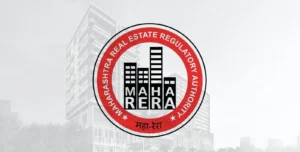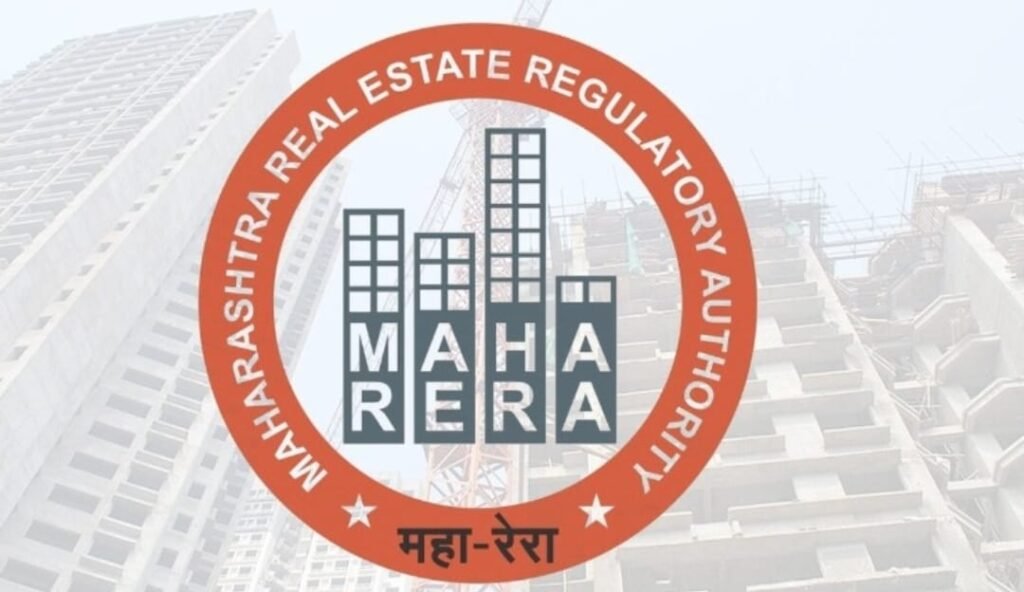 The Real Estate (Regulation and Development) Act, 2016 (RERA), marked a pivotal shift in India’s real estate landscape, aiming to bring transparency, accountability, and fairness to an industry often criticized for its opaque practices. Among the states implementing RERA, Maharashtra stands out with the Maharashtra Real Estate Regulatory Authority (MahaRERA), a model regulator fostering trust between developers and buyers. Whether you’re a developer or a buyer, understanding MahaRERA is critical to navigating the real estate market successfully.
The Real Estate (Regulation and Development) Act, 2016 (RERA), marked a pivotal shift in India’s real estate landscape, aiming to bring transparency, accountability, and fairness to an industry often criticized for its opaque practices. Among the states implementing RERA, Maharashtra stands out with the Maharashtra Real Estate Regulatory Authority (MahaRERA), a model regulator fostering trust between developers and buyers. Whether you’re a developer or a buyer, understanding MahaRERA is critical to navigating the real estate market successfully.
In this guide, we’ll explore the essentials of MahaRERA, its benefits, registration process, compliance requirements, and how it impacts developers and buyers.
What Is MahaRERA?
MahaRERA is the state-specific implementation of RERA in Maharashtra, established to regulate and promote the real estate sector. Operational since May 1, 2017, MahaRERA enforces the rules and regulations outlined under the central RERA Act. Its primary goals are:
- Enhancing transparency in transactions.
- Promoting accountability in project delivery.
- Ensuring financial discipline in real estate projects.
- Facilitating quick dispute resolution for buyers and developers.
MahaRERA requires developers to register their projects, provide detailed disclosures, and adhere to timelines, ensuring buyers receive what they’re promised.
Benefits of MahaRERA
MahaRERA is beneficial for both buyers and developers, providing a framework to streamline real estate transactions and build trust.
Benefits for Buyers:
- Transparency: Buyers can access detailed project information, including approvals, timelines, and progress, via the MahaRERA portal.
- Timely Delivery: Developers must adhere to declared deadlines or face penalties.
- Standardization: Allottees are protected against misleading advertisements or false promises.
- Grievance Redressal: Buyers can lodge complaints for delays, misrepresentation, or quality issues.
Benefits for Developers:
- Credibility: MahaRERA registration adds legitimacy to projects, boosting buyer confidence.
- Financial Discipline: Clear rules regarding fund allocation (70% of project funds to be reserved for construction) ensure smoother project execution.
- Dispute Resolution: MahaRERA offers a structured process for resolving disputes without lengthy legal battles.
- Market Visibility: MahaRERA-registered projects gain better exposure and trust among buyers.
MahaRERA Registration: A Step-by-Step Guide for Developers
For developers, registering with MahaRERA is mandatory for any project exceeding 500 square meters or involving more than eight units. Here’s how to register:
Step 1: Gather Documents
Ensure you have all necessary documents, including:
- Project details (layout plan, location, and timeline).
- Ownership proof or title certificate.
- Approvals from local authorities.
- Financial statements.
- Architect’s and engineer’s certifications.
Step 2: Create a MahaRERA Account
Visit the MahaRERA portal (maharera.mahaonline.gov.in) and create an account.
Step 3: Fill the Registration Form
Complete the online registration form with accurate details about your project, including timelines, financial planning, and compliance with applicable laws.
Step 4: Pay the Registration Fee
Pay the fee based on the project size and submit your application.
Step 5: Await Approval
Once submitted, MahaRERA will review your application. On approval, your project will receive a registration number, which must be displayed on all promotional materials.
MahaRERA for Buyers: How to Verify Projects
As a buyer, it’s essential to ensure the property you’re investing in is MahaRERA-registered. Here’s how:
- Visit the MahaRERA Portal:
Access the MahaRERA website to search for registered projects. - Check the Project Registration Number:
Verify the project’s registration number, which should be displayed in advertisements or provided by the developer. - Review Project Details:
The portal provides comprehensive details, including project timelines, approvals, and updates. - File a Complaint if Necessary:
If the developer fails to deliver as promised, buyers can file a complaint directly through the portal.
Key Compliance Requirements Under MahaRERA
For developers, compliance with MahaRERA extends beyond registration. Key requirements include:
- Accurate Disclosures:
Developers must provide precise project details, including layout plans, timelines, and approvals. Any changes require MahaRERA approval. - Adherence to Timelines:
Developers must complete projects within the declared deadline or face penalties. - Fund Allocation:
Seventy percent of funds received from buyers must be deposited in a separate escrow account and used solely for project development. - Regular Updates:
Developers must update project progress on the MahaRERA portal quarterly. - Transparent Marketing:
Advertising unregistered projects is prohibited. All promotional materials must include the MahaRERA registration number.
MahaRERA’s Role in Dispute Resolution
MahaRERA provides a straightforward mechanism for resolving disputes between buyers and developers:
- Filing Complaints:
Aggrieved parties can file complaints on the MahaRERA portal by paying a nominal fee. - Hearings:
MahaRERA schedules hearings, ensuring both parties present their case. - Resolution:
Decisions are typically delivered within 60 days, making it a quicker alternative to traditional litigation. - Appeals:
Dissatisfied parties can appeal to the Real Estate Appellate Tribunal.
Common Myths About MahaRERA
Despite its widespread adoption, misconceptions about MahaRERA persist:
- Myth: Only large projects are covered under MahaRERA.
Reality: Any project over 500 square meters or eight units must register. - Myth: Buyers cannot complain if the project is not registered.
Reality: Buyers can report non-registration to MahaRERA for action. - Myth: MahaRERA delays project approvals.
Reality: MahaRERA accelerates project timelines by ensuring compliance and accountability.
How MahaRERA Shapes Maharashtra’s Real Estate
MahaRERA has revolutionized Maharashtra’s real estate industry by fostering trust and professionalism. Developers now operate with greater transparency, while buyers feel more confident in their investments. By regulating project finances, standardizing practices, and offering quick dispute resolution, MahaRERA ensures that the real estate sector contributes to the state’s economic growth while protecting consumer interests.
Conclusion
MahaRERA is more than a regulatory body—it’s a transformative force that promotes fairness, accountability, and transparency in Maharashtra’s real estate market. For developers, MahaRERA compliance builds credibility, streamlines operations, and fosters trust. For buyers, it offers a safety net, ensuring timely delivery, accurate information, and a quick resolution of grievances.
Whether you’re a developer planning your next project or a buyer seeking your dream home, understanding MahaRERA is essential for making informed decisions. At BrightNest Realty, we specialize in guiding clients through MahaRERA compliance and processes, ensuring seamless transactions and long-term success. Trust us to be your partner in navigating the dynamic real estate landscape under MahaRERA.


